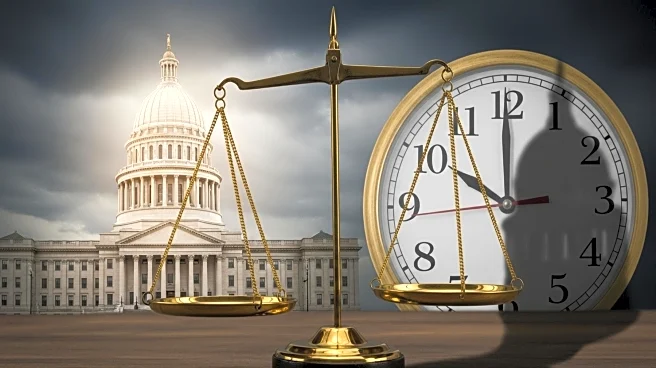What's Happening?
The U.S. Senate has failed to pass two competing funding proposals, making a government shutdown imminent. The White House budget office has instructed federal agencies to begin implementing shutdown plans. The Republican proposal aimed to extend current spending levels through mid-November, while the Democratic proposal sought to extend Affordable Care Act benefits and reverse Medicaid funding cuts. With no agreement reached, the government is set to shut down, affecting numerous federal operations and services.
Why It's Important?
The failure to pass funding bills highlights the ongoing partisan gridlock in Congress, with significant implications for federal employees and services. A shutdown could disrupt various government functions, from national security to public health, and impact the economy. The inability to reach a compromise reflects broader challenges in U.S. governance, where political divisions hinder effective decision-making. The shutdown could also affect public perception of both parties, influencing future elections and policy debates.
What's Next?
As the shutdown takes effect, federal agencies will begin furloughing employees and halting non-essential operations. Congressional leaders may face increased pressure to negotiate a resolution, but with both sides holding firm, a quick compromise seems unlikely. The shutdown's duration and impact will depend on the willingness of lawmakers to find common ground and address the underlying issues driving the impasse.










